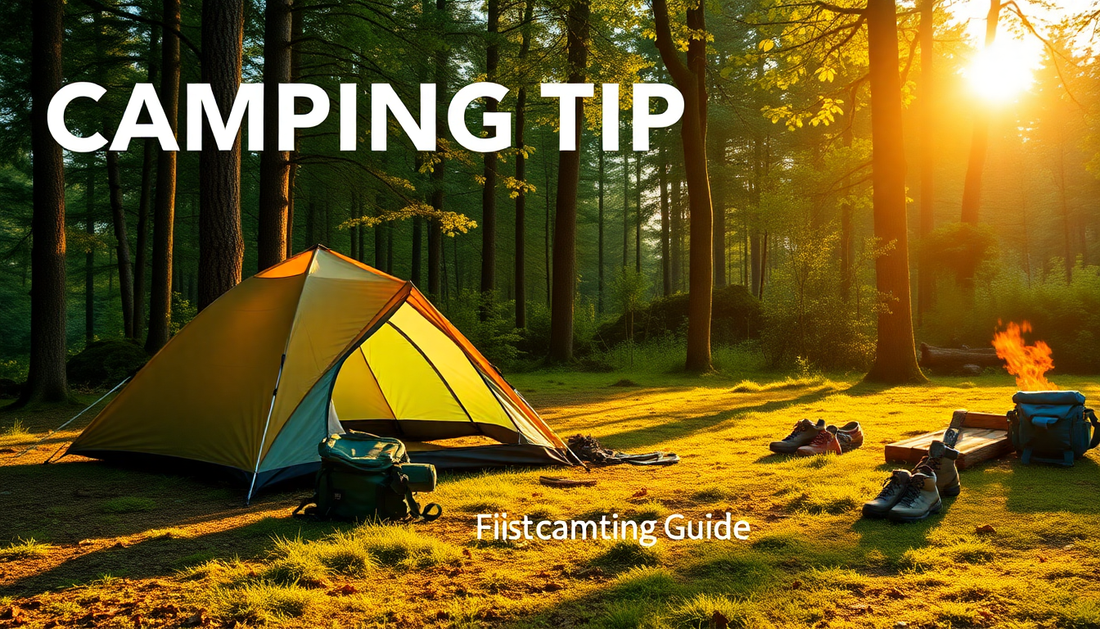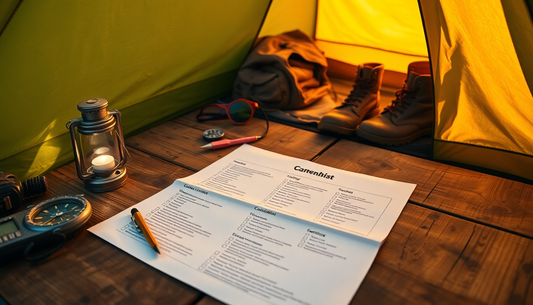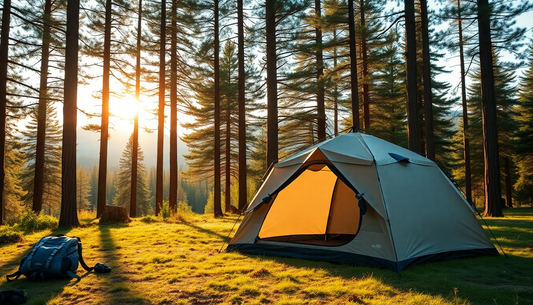
10 Essential Camping Tips for First-Time Campers
Embarking on your first camping adventure can be an exhilarating yet daunting experience. Whether you're planning a weekend getaway or a week-long excursion, it's important to be well-prepared to ensure a safe and enjoyable trip. As the experts at GoCamp Gear, we've compiled a comprehensive list of 10 essential camping tips to help first-time campers make the most of their outdoor experience.
Choosing the Right Gear
One of the most crucial aspects of camping is having the right gear. From the tent and sleeping bag to the cooking equipment and hiking boots, every item you bring can make a significant difference in your comfort and overall experience. Take the time to research and invest in high-quality, durable gear that is suitable for the climate and terrain you'll be exploring.
Selecting the Appropriate Tent
The type of tent you choose will depend on the number of people in your group, the weather conditions, and the location of your campsite. Consider factors such as the tent's size, weight, and weather-resistance to ensure it meets your needs. If you're unsure, consult with the knowledgeable staff at GoCamp Gear for personalized recommendations.
Layering for Comfort
Dressing in layers is key to staying comfortable in the great outdoors. Pack a variety of clothing options, including moisture-wicking base layers, insulating mid-layers, and weatherproof outer layers. This will allow you to adjust your attire as the temperature and weather conditions change throughout the day.
Packing the Essentials
In addition to your tent and clothing, make sure to pack the essential camping gear such as a sleeping bag, sleeping pad, headlamp or flashlight, multi-tool, first-aid kit, and a reliable water filtration system. Don't forget to include any specialized equipment you may need, such as hiking poles, camp chairs, or a camp stove.
Planning Your Route and Campsite
Proper planning is crucial for a successful camping trip. Research the area you'll be visiting, including the terrain, weather patterns, and any potential hazards or restrictions. Decide on your route and campsite location, and be sure to obtain any necessary permits or reservations.
Navigating with a Map and Compass
While GPS devices can be helpful, it's important to also know how to use a traditional map and compass. Familiarize yourself with the area's topography and learn how to read and interpret the map before your trip. This will ensure you can navigate safely, even in the event of a technology failure.
Choosing the Right Campsite
When selecting a campsite, look for a level, well-drained area that is sheltered from the wind and away from any potential hazards, such as steep cliffs or flood-prone areas. Avoid camping too close to water sources to minimize the risk of attracting wildlife.
Staying Safe and Prepared
Safety should be a top priority when camping. Take the necessary precautions to protect yourself and your group from potential risks, such as wildlife encounters, extreme weather, and medical emergencies.
Familiarizing Yourself with Wildlife
Research the local wildlife in the area you'll be visiting and learn how to identify and properly store food to avoid attracting animals to your campsite. Understand the appropriate actions to take in the event of an encounter with a wild animal.
Preparing for Emergencies
Pack a well-stocked first-aid kit and familiarize yourself with basic emergency procedures. Ensure you have a reliable means of communication, such as a satellite phone or emergency beacon, in case you need to call for help. It's also a good idea to let someone outside of your group know your itinerary and expected return date.
Minimizing Your Impact
As responsible campers, it's important to prioritize the preservation of the natural environment. Adopt a "leave no trace" mindset and take steps to minimize your impact on the land and wildlife.
Practicing Leave No Trace Principles
Familiarize yourself with the seven principles of Leave No Trace: plan ahead and prepare, travel and camp on durable surfaces, dispose of waste properly, leave what you find, minimize campfire impacts, respect wildlife, and be considerate of other visitors. Adhere to these guidelines to ensure you leave the area as you found it, or better.
Packing Out What You Pack In
Carefully manage your waste and ensure you pack out everything you bring with you, including any food scraps, packaging, and other refuse. Dispose of it properly at designated waste facilities or by following the appropriate leave no trace methods.
Embracing the Outdoors
Camping is an opportunity to disconnect from the stresses of everyday life and immerse yourself in the beauty of the natural world. Approach your trip with a sense of wonder and curiosity, and be open to the unexpected experiences that may arise.
Connecting with Nature
Take the time to slow down, observe your surroundings, and appreciate the sights, sounds, and smells of the great outdoors. Engage in activities that allow you to connect with the natural environment, such as hiking, birdwatching, or stargazing.
Creating Lasting Memories
Camping trips are often filled with moments of laughter, adventure, and personal growth. Embrace the opportunity to create lasting memories with your friends, family, or fellow campers. Document your experiences through photography, journaling, or simply by being present in the moment.
By following these 10 essential camping tips, first-time campers can embark on their outdoor adventure with confidence and a greater appreciation for the natural world. Remember, the key to a successful camping trip is thorough preparation, a willingness to adapt, and a spirit of exploration. Happy camping!


